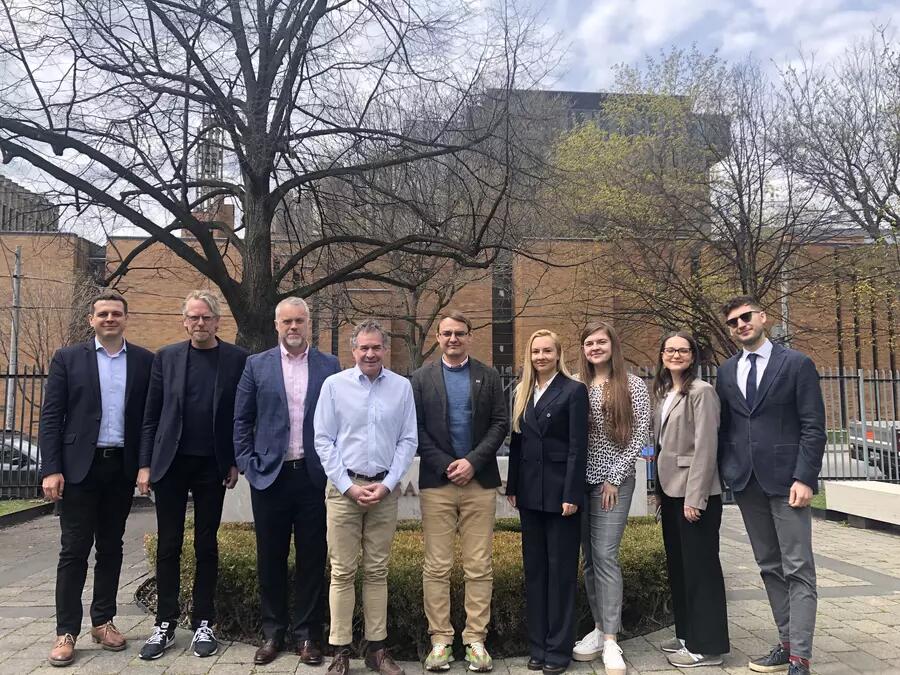
Winners announced at First Annual KSE-Munk Policy Brief Competition
Anton Babak and Olena Voynich, both part of a joint initiative between the Kyiv School of Economics (KSE) and the Munk School, have won the First Annual KSE-Munk Policy Brief Competition.
Part of the MITACS Globalink research project to fund Ukrainian students at the Munk School, the Policy Brief Competition is part of a broader effort by KSE and the Munk School to train a new generation of policymakers who can aid Ukraine during the war and help to build strong, accountable institutions that support democracy and economic growth when the war ends.
The in-person competition, which took place on at the end of April, featured 10 contestants. The nine policy briefs they presented covered topics critical to Ukraine’s development in the context of war: veterans’ mental health, NATO, education policy, policies to reduce corruption in procurement, decentralization, criminal justice reform, and tax policy.
Since October 2022, Munk School professors Drew Fagan, Ian Shugart and Lucan Way have helped the students develop research topics, formulate policy recommendations, and organize their arguments in a clear and convincing way. The contestants also received individual guidance from professors and specialists from across the University of Toronto and the University of British Columbia.
“I was impressed by the students’ dedication, unflagging enthusiasm and capacity to work in often trying circumstances,” said Way. “All of the students developed highly focused briefs that were sensitive to the challenges facing Ukraine today.”
The winning policy briefs focused on tax reform and criminal justice reform. Babak’s report analyzed the “Diia City”, a special legal and tax regime for information technology businesses in Ukraine. According to his analysis, the Ukrainian government lacks an adequate tool to assess the efficacy of this policy. Babak proposed an assessment framework, relying on existing data, that would allow decision makers to identify whether or not a policy is achieving its goals of formalizing IT activity, a process that currently occurs informally. Babak’s plan also allows the government to assess whether the tax regime is facilitating IT investment and growth.
Voynich’s work addressed ways to mitigate problems caused by overcrowding and inhumane living conditions in the Ukrainian prison system. Such conditions, which have worsened since the Russian invasion, have sparked multiple judgements against Ukraine by the European Court of Human Rights and other international bodies. To address these issues, Voynich proposed decreasing the length of sentences for nonviolent crimes and expanding the use of probation as an alternative to prison time.
The competition jury unanimously agreed that both briefs reflected detailed research, thoughtful analysis and a careful consideration of the Ukrainian context.
The winning reports will be presented in front of high-level Canadian and Ukrainian decision-makers with the hope that they may help inform policy in Ukraine and provide Canada with a deeper understanding of the issues confronting the country.

